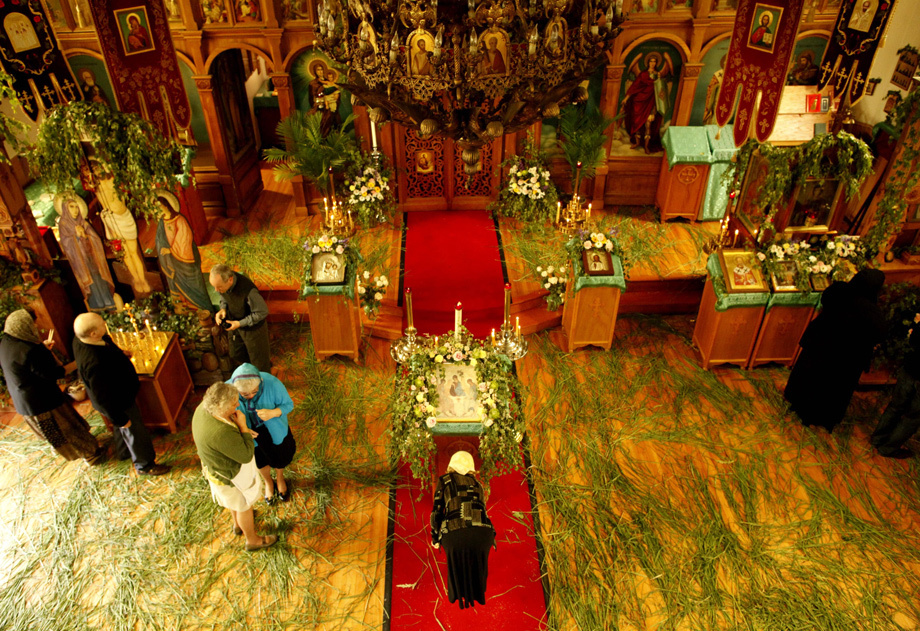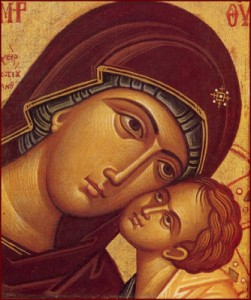
by Wesley Giesbrecht
A Shrinking Circle and an Enlarging Ecclesiology
I was a part of a prison ministry team with her father and it just so happened that the day she discovered the letter and showed her parents was the day of one of our trips to the prison. The whole time I was nervous and uneasy. The thing I was afraid of most of hurting him and his family, something I never would have wanted to do. The whole time he treated me like normal and I began to wonder if perhaps he had left home before his daughter found the letter. After we finished our time at the prison we went to Tim Hortons to get some coffee. As everyone was going in I asked him if he wouldn’t mind sticking around in the vehicle, I had something that I wanted to talk to him about.
Turns out he had read the letter and everything was fine. He understood by reading the letter that it was a confession rather than an advance on his daughter. He told me that I had nothing to apologize for but since he is a father and he needs to look after his daughter’s well being that it would be best if I wouldn’t come by his home for a while; at least until things had cooled down. I completely agreed and understood.
Not only did my circle begin to shrink here but also many of my fellow Christian co-workers began to leave work. I found myself no longer feeling to need to constantly dwell on how I could never been at union with them, and since I was finally free of my feelings towards the girls I was once again able to focus on theological matters. This was one of the happiest moments of my life.
I began to examine my theological convictions and at this point is where I begun reading Scot Mcknight. Another curious development was some connections I began to see in the Bible between the human body of Christ and the Church. The Bible spoke about the fullness of divinity being in Christ bodily (Colossians 2:9) and the Church being His body which is the fullness of all in all (Ephesians 1:22-23).
I began to understand the ecclesiology is dependent on Christology and that since Christ assumed a visible and particular human body then there must be a visible and particular Church.
Authority
By far the biggest turning point on my Christian journey happened around this time. The church I was a part of was doing a weekly discussion series and the one week we got on to the topic of Biblical interpretation. I was appalled when I heard from two influential men in the congregation the sentiment that it is useless to read biblical commentary (it was likened to listening to talk show radio) and that it is better to just read one’s Bible for oneself and interpret it that way. This statement was absolutely revolting to me! At the time I was in the process of going through the Gospel of John with my Sunday School class according to the commentary written by N. T. Wright. I valued the insight of the commentary because Wright is a biblical scholar; he knows the Greek, he’s studied to text, he’s highly educated.
To dismiss commentaries in favor or personal private interpretation provoked this thought in me,
“Okay, so you say that it’s useless to read commentary and that we should just read Scripture for ourselves. What then gives you any authority to preach on your interpretation of a biblical text and expect me to believe it? Should I just read the text for myself? Where is the world is there the authority on how the Bible is to be interpreted?”
It was around this time that I came across the article by Ben Witherington (the third) that stated that there was no such thing as a New Testament until at least the fourth century (he was referring to the list of canonical Scripture by St. Athanasius of Alexandria). This struck me incredibly. What did the early Church do and believe before there was a Bible?
Coffee and an Icon
When I began to seriously ask these questions about Scripture, Authority, Tradition, and the Early Church my Orthodox friend was in town for the Christmas holidays. He messaged me, or I messaged him (I don’t recall the specifics), and we ended up going for coffee. As we went for coffee he gave me my first icon; the Mother of God holding Christ. As we were talking to began to describe for him my theological convictions to which he replied,
“Well, you’re not Protestant”.
 His words hit me like a train. After our coffee I dropped him off and went back home. I decided to set up my new icon on my coffee table, light some candles in front of it, listen to the hymn ‘Let All Mortal Flesh Keep Silence’ (from the Liturgy of St. James) and look at my icon. I had already come to a place where I accepted the title of ‘Theotokos’ (Mother of God) for Mary since she gave birth to the Second Person of the Trinity, God the Son. While I was staring at the icon though something within me clicked as I looked at how the face of Christ was against His mother’s and how they were looking into each other’s eyes and I thought to myself,
His words hit me like a train. After our coffee I dropped him off and went back home. I decided to set up my new icon on my coffee table, light some candles in front of it, listen to the hymn ‘Let All Mortal Flesh Keep Silence’ (from the Liturgy of St. James) and look at my icon. I had already come to a place where I accepted the title of ‘Theotokos’ (Mother of God) for Mary since she gave birth to the Second Person of the Trinity, God the Son. While I was staring at the icon though something within me clicked as I looked at how the face of Christ was against His mother’s and how they were looking into each other’s eyes and I thought to myself,
“She’s His mother, of course she’s important”.
In some mystical manner I now finally understood Mariology. That night I was laying in my bed and watching a video of the Divine Liturgy of St. John Chrysostom when suddenly I realized,
“I want to be Orthodox”.
Part Four “The Scales Tip” can be read by clicking HERE.

Leave a Reply